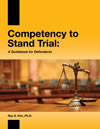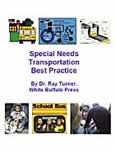 Dr. Jane K. McNaught, PhD is a locally and nationally recognized Forensic Psychological Expert specializing in Post Traumatic Stress Disorder with adults and children. Over the course of her more than 35 years of practice, she has worked with both Defense and Plaintiff attorneys and has also been a Court appointed expert.
Dr. Jane K. McNaught, PhD is a locally and nationally recognized Forensic Psychological Expert specializing in Post Traumatic Stress Disorder with adults and children. Over the course of her more than 35 years of practice, she has worked with both Defense and Plaintiff attorneys and has also been a Court appointed expert.
Dr. McNaught has administered more than 1700 psychological test batteries and testified on over 500 occasions as a forensic expert in the areas of: Civil, Criminal, and Family Law. She also provides trial consultation for attorneys. Dr. McNaught has been qualified and testified as an expert in PTSD, for both the U.S. Army as well as the U.S. Navy. In addition she has testified as an expert in both District and Federal court. Dr. McNaught practices in the areas of Civil, Criminal, and Family Law cases involving trauma to both adults and children.
In the Civil area, Dr. McNaught is frequently hired as an expert when there are allegations of Emotional Damages involving Post Traumatic Stress Disorder (PTSD). Dr. McNaught has been hired in cases of alleged sexual misconduct within institutional settings such as: Schools, Churches, Treatment Centers, Hospitals, Residential Centers for the Handicapped, Jails and other Police alleged violations.
The following are cases where Dr. McNaugth has been an expert: PTSD cases involving veterans; injuries related to Motor Vehicle Injuries/Death; Dog Bite; Amputation; Burns; and Electrocution. Dr. McNaught has also been an expert in Medical Malpractice Cases,Wrongful Death, and Infant Death cases. Employment Law Experience in cases involving Age or Sexual Harassment where PTSD is alleged.
In the Criminal area, Dr. McNaught is hired by both the Prosecution as well as Defense in cases involving Sexual Misconduct. She also conducts evaluations of Defendants in criminal cases where Underlying Psychological Conditions may impact sentencing. She has also been obtained as an expert to evaluate the reliability of statements obtained from alleged victims of sexual assault. When doing so, Dr. McNaught addresses the following: Recantation, Memory Research, and the Standard of Care for Interviewing Victims of Sexual Assault.
In the area of Family Law, Dr. McNaught specializes in High Conflict Divorce and and provides consultation in issues related to: Relocation; Endangerment; Factitious Disorder by Proxy; Parental Capacity; and Parental Alienation. Dr. McNaught is also frequently obtained as an expert to critique other evaluator's reports.
View Dr. McNaught's Consulting Profile.
Physical traumas such as a serious burn injury can be profoundly traumatic. Serious burns result in sudden unanticipated trauma related to the individual's exposure to a potentially life-threatening experience. One day the burn victim begins their day like any other, and by the end of the day the burn victim's life may be changed forever by the traumatic event experienced. A Forensic Psychological Expert utilizes well respected psychological tests to assess the emotional impact of such injuries. The psychological tests employed are statistically reliable and valid. The choice of valid and reliable psychological tests employed by a Forensic Psychologist are similar to tests used by a physician to diagnose diabetes or other medical disorders. Such tests offer norms that compare the individual in question to a large normative sample, in order to evaluate the burn victim's psychological functioning compared to that of the "normal" person.
When divorce occurs in the family, an inevitable loss occurs in the lives of the parents as well as children. Positive adjustment to divorce comes when both of the parents as well as the children develop healthy coping methods to deal with the loss. This enables both parents and children to move forward with their new lives. Unfortunately, many parents who suffer from their own disturbed attachment history or mental health issues, are unable to put aside their anger and constructively cope with the loss. In such cases, parents often undermine the children's relationship with the other parent, in order to express their own unresolved parental anger and sadness about the divorce.
Formerly this disorder has been referred to as Munchausen by Proxy and later, Factitious Disorder by Proxy. In the current version of the American Psychiatric Association's Diagnostic Criteria, Diagnostic and Statistical Manual of Mental Disorders, fifth edition (DSM-V), the disorder is referred to as Factitious Disorder Imposed on Another, (DSM-V 300.19). The perpetrator and not the victim is given this diagnosis. The victim is given an abuse diagnosis.
Forensic Psychologists can assist both Plaintiff and Defense lawyers in their assessment of the emotional damages related to traumatic injuries with adults as well as children. PTSD in children and teens is caused by events that have caused them or someone else to be killed or badly injured. Not all children develop PTSD after a traumatic injury. 3-15% of girls and 1-6% of boys develop PTSD in response to a traumatic experience. Rates of PTSD are higher for certain types of trauma survivors. Nearly 100% get PTSD if they see a parent being killed or if they see a sexual assault. 90% of sexually abused children develop PTSD; 77% of children who see a school shooting develop PTSD; and 35% of children who see violence in the area they live, develop PTSD (National Center for PTSD in Children and Teens).
Amputation is an injury involving loss of function, loss of sensation, and loss of body image. It is not surprising amputees often suffer psychological difficulties following such an event. Further, these psychological difficulties can also result in long term Post Traumatic Stress Disorder (PTSD) for the amputee. Often these psychological injuries and resultant PTSD can be difficult to explain to a jury. The forensic expert's presentation of psychological testing assessing potential PTSD is one part of proving or disproving damages. However, the forensic expert can better assist either the Defense or Plaintiff's attorney by addressing specific functions in the amputee that have been affected by the injury.





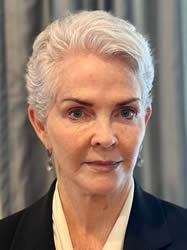








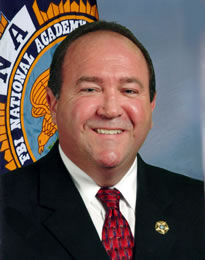 John S. Bukata is a seasoned, goal-oriented, and performance-driven Police Executive with over 42 years of demonstrated success in a broad range of settings, including law enforcement, city government, strategic planning, child dependency, and safety and security in university campus environment.
John S. Bukata is a seasoned, goal-oriented, and performance-driven Police Executive with over 42 years of demonstrated success in a broad range of settings, including law enforcement, city government, strategic planning, child dependency, and safety and security in university campus environment. 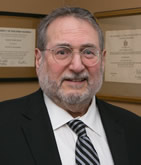 Charles H. Heller, PhD, is a Forensic Psychology Expert with over 35 years of experience in his field. Dr. Heller is currently on staff at Rutgers University Biomedical Health Service, specializing in criminal behavior and risk assessment. He also serves as a forensic psychologist consultant for the Rockland County (NY) court evaluation service, where he has performed hundreds of child custody, as well as criminal competency and child abuse/neglect evaluations.
Charles H. Heller, PhD, is a Forensic Psychology Expert with over 35 years of experience in his field. Dr. Heller is currently on staff at Rutgers University Biomedical Health Service, specializing in criminal behavior and risk assessment. He also serves as a forensic psychologist consultant for the Rockland County (NY) court evaluation service, where he has performed hundreds of child custody, as well as criminal competency and child abuse/neglect evaluations. Dr. Jane K. McNaught, PhD is a locally and nationally recognized Forensic Psychological Expert specializing in Post Traumatic Stress Disorder with adults and children. Over the course of her more than 35 years of practice, she has worked with both Defense and Plaintiff attorneys and has also been a Court appointed expert.
Dr. Jane K. McNaught, PhD is a locally and nationally recognized Forensic Psychological Expert specializing in Post Traumatic Stress Disorder with adults and children. Over the course of her more than 35 years of practice, she has worked with both Defense and Plaintiff attorneys and has also been a Court appointed expert. Jeffrey A. Sugar, MD has been a practicing Psychiatrist for over 20 years. Dr. Sugar is board certified both in Child and General Psychiatry. He is Past President of the Southern California Society of Child and Adolescent Psychiatry.
Jeffrey A. Sugar, MD has been a practicing Psychiatrist for over 20 years. Dr. Sugar is board certified both in Child and General Psychiatry. He is Past President of the Southern California Society of Child and Adolescent Psychiatry.
